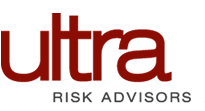During November, the home care and hospice community honor the millions of nurses, home care aides, therapists, and social workers who make a remarkable difference for the patients and families they serve. These heroic caregivers play a central role in our health care system and in homes across the nation. To recognize their efforts, we call upon all Americans to commemorate the power of caring, both at the home and in their local communities and ask them to join with the National Association for Home Care & Hospice (NAHC) by celebrating November as Home Care and Hospice Month.
In recognition of Home Health Month, Ultra is re-publishing a blog posted in 2013 about the risks of owning a home health business. Ultra policyholders are offered RiskFit membership at binding and renewal and have access to OmniSure’s helpline for advice-on-demand as well as an initial consultation, systematic training online, resources and tools to reduce risk. At the end of the “greatest hits” blog, you’ll find links to three quick-tip videos to help reduce the liability risks associated with owning a home health business.
Owning a Home Healthcare Agency Can Be Risky Business.
“Should I stay or should I go?” is the question many elderly people are starting to ask themselves – meaning “Do I really want to leave the home I’ve lived in for 40 years and head off to a facility with skilled nurses to care for me or can I actually find someone to care for me right here in my home?”
Fortunately, there is such a service called “home healthcare” which is becoming a popular choice for elderly patients needing in-home care as well as continued post–acute care after their hospital discharge.
The rapid growth of home healthcare has created a shortage of skilled staff including registered nurses, licensed practical nurses, physical therapists, occupational therapists among other positions.
As the demand for home healthcare businesses grow, so does the demand for professional and general liability and workers compensation insurance. The question is how much professional liability insurance does one really need for a home health business? It’s important that the business is properly insured because whenever patient care is involved, a wide variety of risks are assumed.
Unfortunately, things don’t always go right with patients, even the best clinician who makes all the right moves can have a patient experience an adverse reaction. It happens more than you might imagine – for example, a nurse is administering a physician-ordered medication that causes an unknown allergic reaction to the patient – so in less than a minute, a routine injection has turned into a full-blown emergency. And remember, it’s the employer that owns the liability for the mistakes made by their clinicians and therefore must be prepared for legal and financial ramifications.
There is no doubt that mistakes, problems and emergencies happen in healthcare offices, but usually there are more resources available when things do go wrong. Out in the field, when clinicians are working in people’s homes, there are a number of reasons the risk is higher than when in a facility or clinic:
- Inability to supervise your employees as they are out in the field on their own. Field clinicians are more difficult to support and to quality check. If someone shows up intoxicated to work, you won’t know until clients do.
- Clinicians working out of people’s homes where they have no idea what the home is like, and what type of environment the patient is in raises a huge red flag for liability risk.
- Clinicians working in home health settings subject themselves to the possibility of abuse and violence.
Again, given that you have limited means of supervising your clinicians in the field, proper professional liability protection is crucial to this business.
Watch these Ultra Quick-Tip Videos – Powered by OmniSure:
Hazards in the patient care environment







COMMENTS
No comments yet. You should be kind and add one!
The comments are closed.